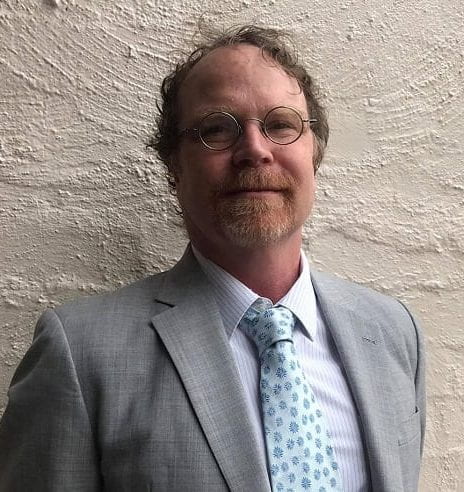
Associate Professor Guy Charlton
#UNELaw’s Associate Professor Guy Charlton presented a paper at the 2021 Australian Law and Academics Association (ALAA) conference – “Boldly Academic: Defining, Supporting and Celebrating Legal Scholarship”.
His paper is titled: “Incorporating Traditional Knowledge into State Law: Achieving Better Environmental and Self-Determination Outcomes?”
Guy’s paper ‘discusses how traditional knowledge and notions of “traditionality” and “customary” are incorporated into state environmental and indigenous law. It discusses the benefits and problems using these approaches and concepts in state law and positivist legal discourse. The law in many states has placed a lot of emphasis and weight on these notions as a method of achieving more environmentally sustainable law as well as pluralist legal arrangements that can better reflect indigenous and minority aspirations, self-determination and historical justice.’
His paper ‘discusses the problems with such concepts when they are simply inserted into state law, and how these ideas are used and implemented. These uses can range from an actual reaching toward traditional knowledge and customary law to reductionist and essentializing the notions of culture, creating “invented traditions”, and doing violence to historic spiritual, cultural, economic and social aspects of minority and indigenous activities and culture.’
Guy ‘argues that the use of customary notions and “traditionality” must be more conscious of indigenous epistemology and interpret state law in a more appropriate context dependent manner in order to avoid privileging past practice and historical ambiguity over the present needs and aspirations of indigenous and minority peoples.’



I am curious to know whether or not Guy thinks the (NSW) Aboriginal Cultural Heritage (Culture is Identity) Bill 2022 is a step in the right direction for the protection of Aboriginal cultural heritage. The Bill does not use the term ‘traditional’, unlike the (Cth) Native Title Act s 223, where requiring proof of ‘traditional’ connection/laws/custom’ etc often results in tension in Aboriginal communities, between ‘traditional owners’ and the authority of other Aboriginal organisations and individuals in the community, problems that need to be resolved to maintain harmony and to exercise self-determination.